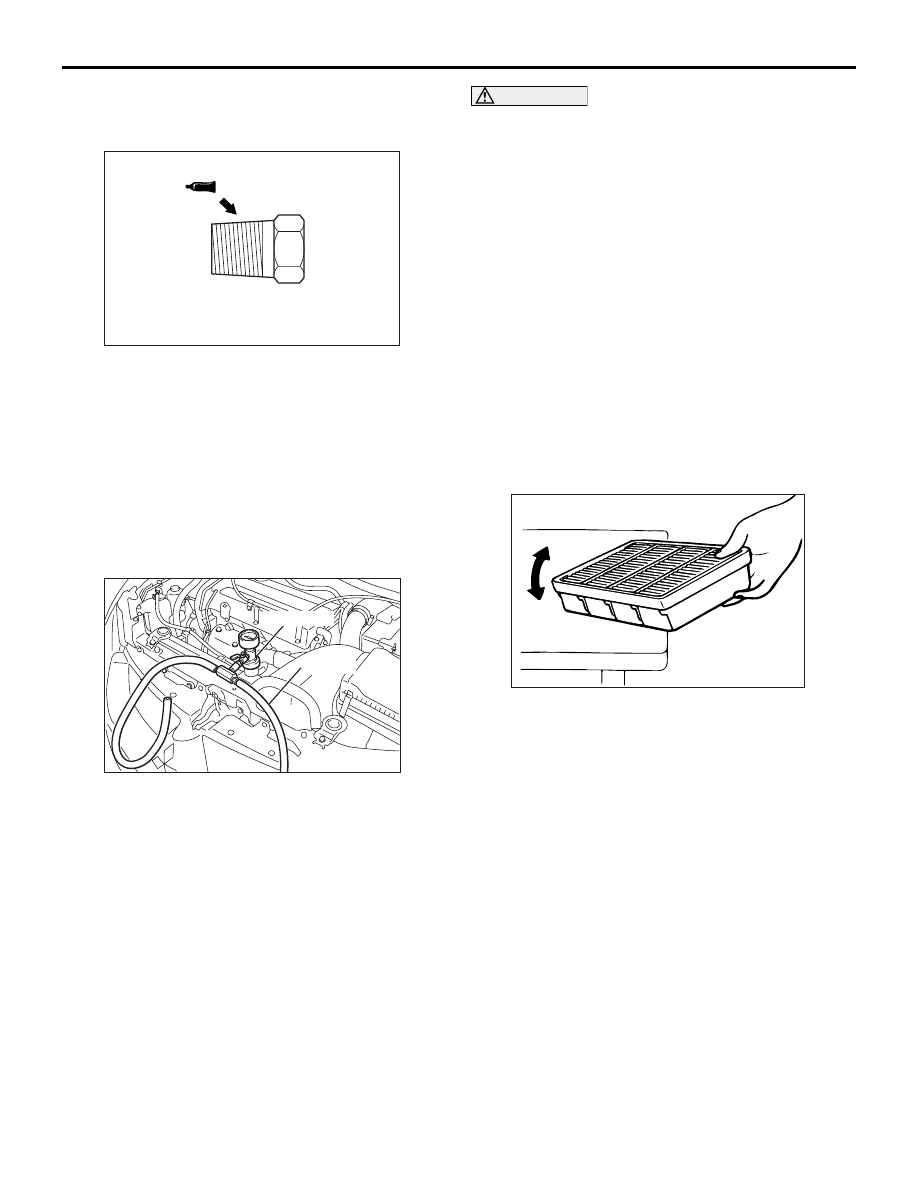Mitsubishi Lancer. Manual - part 69

OPERATIONS INSIDE THE ENGINE COMPARTMENT
PERIODIC INSPECTION AND MAINTENANCE
2-12
4. When the engine coolant has drained, pour in
water from the radiator cap to clean the engine
coolant line.
5. Coat the thread of the cylinder block drain plug
with the specified sealant and tighten to the
specified torque.
Specified sealant: 3M Nut Locking Part
No.4171 or equivalent
Tightening torque:
40
± 5 N⋅m <4G1>
44
± 5 N⋅m <4G6>
6. Securely tighten the radiator drain plug.
7. Install the reserve tank.
8. By referring to the section on coolant, select an
appropriate concentration for safe operating
temperature within the range of 30 to 60%. Use
special tool LLC changer (MB991871) to refill the
coolant. A convenient mixture is a 50% water and
50% antifreeze solution (freezing point:
−31°C)
NOTE: For How to use special tool MB991871,
refer to its manufacturer’s instructions.
Recommended antifreeze: DIA QUEEN
SUPER LONG LIFE COOLANT or equivalent
Quantity:
5.0L <4G1>
7.0L <4G6>
CAUTION
Do not use alcohol or methanol anti-freeze or any
engine coolants mixed with alcohol or methanol
anti-freeze. The use of an improper anti-freeze
can cause the corrosion of the aluminium com-
ponents.
9. Install the radiator cap securely.
10.Start the engine and warm the engine until the
thermostat opens. (Touch the radiator hose with
your hand to check that warm water is flowing.)
11.After the thermostat opens, race the engine
several times, and then stop the engine.
12.Cool down the engine, and then pour engine
coolant into the reserve tank until the level
reaches the FULL line. If the level is low, repeat
the operation from step 10.
A12. CHECK AIR CLEANER ELEMENT
FOR CLOGGING AND DAMAGE
M6020201200022
1. Check air cleaner element for clogging and
damage.
2. Clean deposited dust from the element in the
following manner.
(1) Lightly tap the element against the top of a
bench.
(2) Blow compressed air from inside the element.
3. Wipe off dust on the air cleaner interior.
4. Install the air cleaner body.
A13. REPLACE AIR CLEANER ELEMENT
M6020201300029
The air cleaner element will become dirty and loaded
with dust during use, and the filtering effect will be
substantially reduced. Replace it with a new one.
AC104528AE
AC210658AB
MB991871
Air hose
AC305657